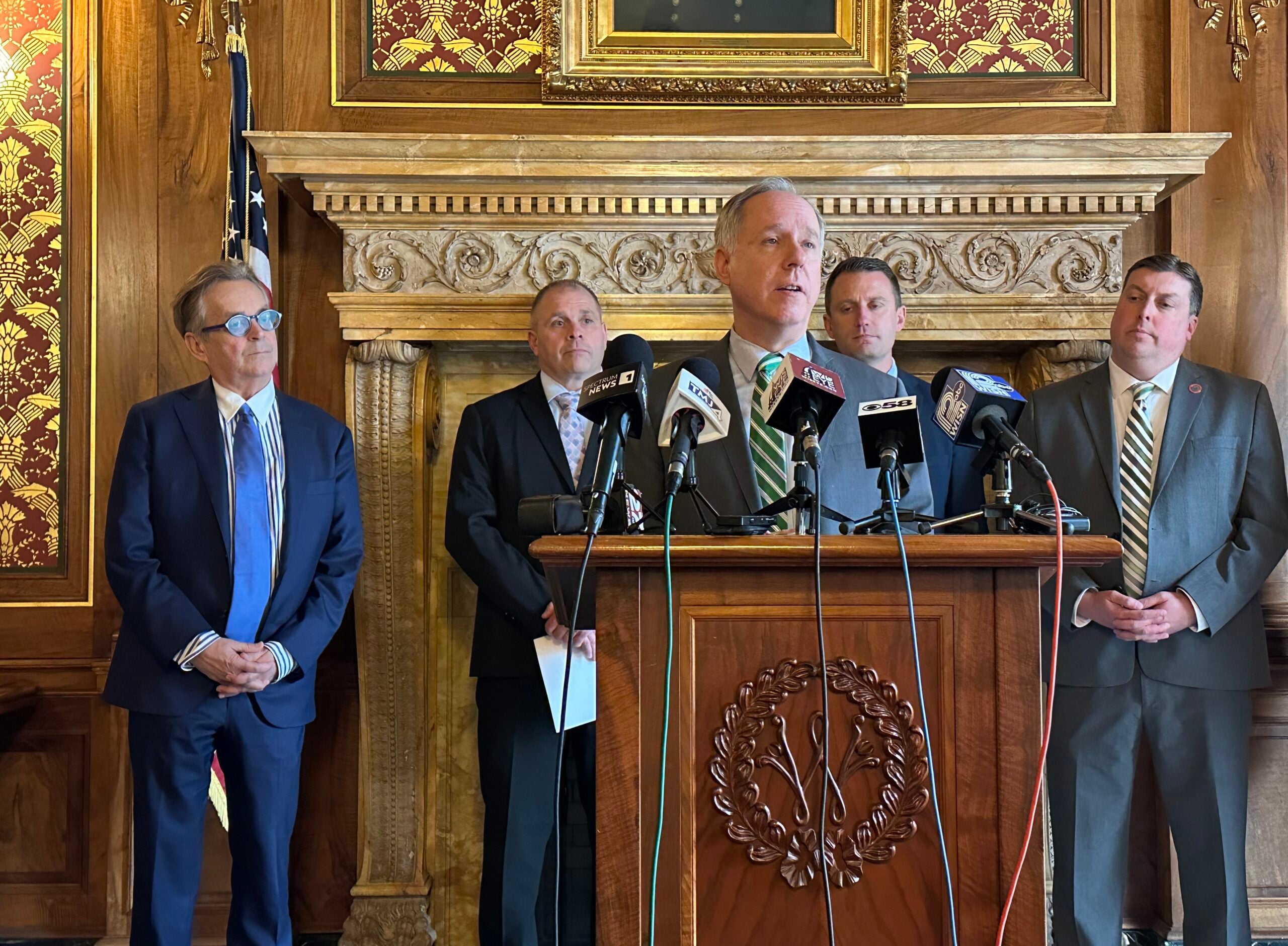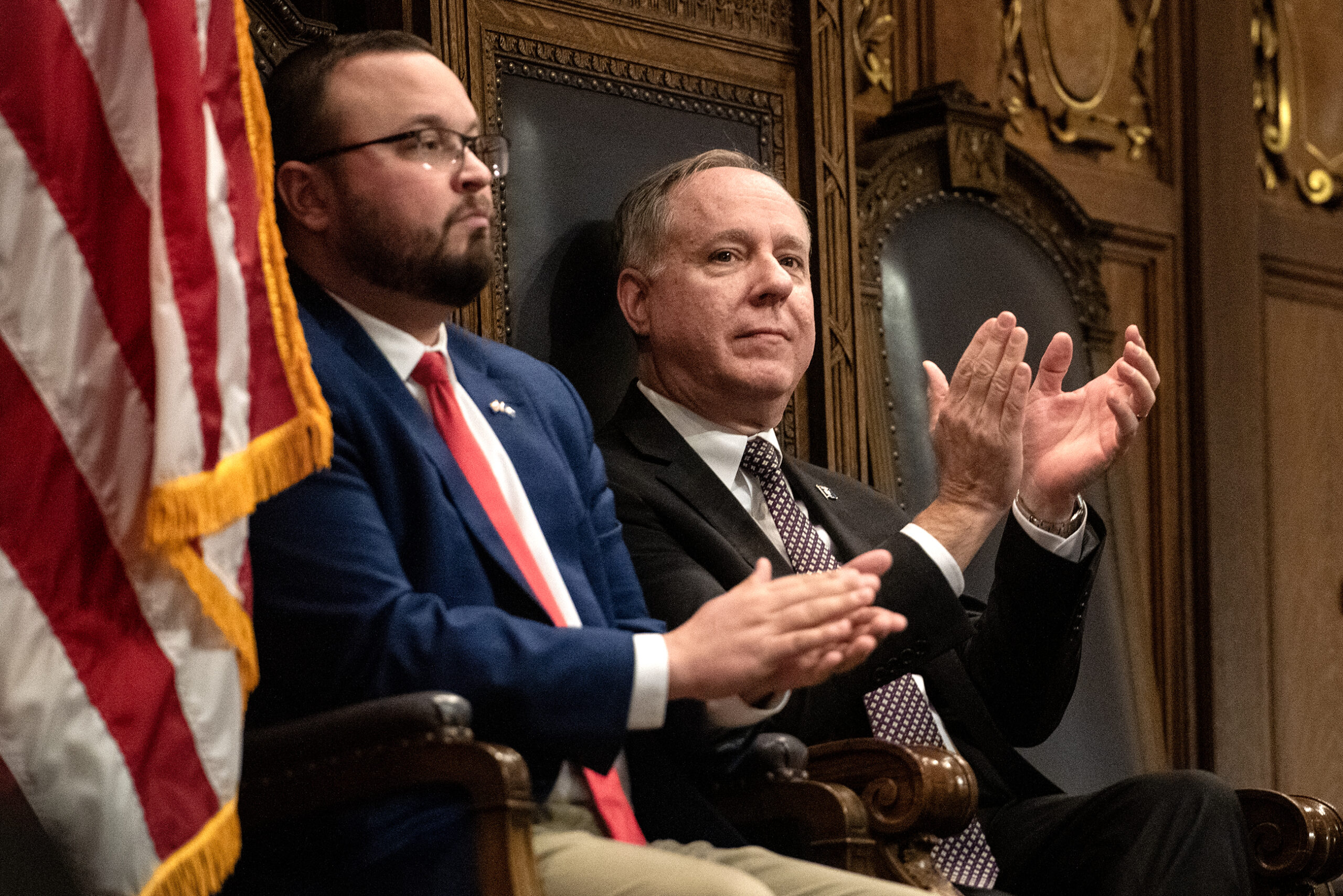A plan for nearly $3 billion in income tax cuts is heading to Wisconsin’s state Senate, despite the promise of a veto from Democratic Gov. Tony Evers.
The bill cleared the state Assembly Tuesday with all Republicans voting in favor and all Democrats against.
The proposal would cut the tax rate from 5.3 to 4.4 percent for Wisconsin’s third income bracket, which covers individuals with annual taxable income ranging from a low of $27,630 to a high of $304,170. It also covers joint filers making between $36,840 and $405,550.
Stay informed on the latest news
Sign up for WPR’s email newsletter.
Additionally, for retirees who are at least 67 years old, the bill would exempt up to $100,000 in retirement income for individuals or up to $150,000 for married couples.
Wisconsin is expected to end its biennial budget cycle with a $4 billion general fund surplus, and Assembly Speaker Robin Vos, R-Rochester, said the tax cut bill would use part of that money to bring relief to Wisconsin’s middle class.
“We watched what occurred in the last Congress and under this president where we have runaway inflation,” Vos told the Assembly on Tuesday. “People are paying more for every single thing in their life. They’re paying more for energy. They’re paying more for gasoline. They’re paying more for food. They’re paying more for rent.”
The concept of returning a surplus to taxpayers who have “overpaid” should be bipartisan, Vos argued.
“There is still plenty of money left to spend on other priorities if that’s what this Legislature chooses,” Vos said. “The vote today is green.”
But Democrats like Rep. Sue Conley of Janesville questioned whether the tax cut is sustainable.
“Working Wisconsinites need — want — affordable, accessible, high quality child care, health care and public education,” Conley said. “That’s how we should be focusing our debate on what to do with our surplus.”
Last week, Evers announced he would refuse to sign the bill once it gets to his desk.
“They’re trying to pass yet another tax plan that puts our state on a path to bankruptcy,” Evers posted to social media, adding that the cuts would jeopardize “investments we need to be making today to address the real, pressing challenges facing our state.”
Evers is calling on lawmakers to meet for a special session next week to take up spending a proposed $1 billion in surplus funds on child care, paid family leave and higher education.
The retirement exemptions combined with the third bracket rate cut would trim taxes by $2.9 billion total over two fiscal years, resulting in lower taxes for more than 1.7 million Wisconsinites in the 2023 tax year, according to the Legislative Fiscal Bureau.
For taxpayers with annual gross incomes between $60,000 and $70,000, the average cut would be $394, according to an LFB analysis. Wisconsin’s median household income is about $67,000, according to 2021 data from the U.S. Census Bureau.
To override a veto, Wisconsin lawmakers need a two-thirds supermajority in both chambers. There are enough Republicans in the state Senate to reach that threshold. But for an override in the state Assembly, Republicans would need to get at least two Democrats on their side.
Also on Tuesday, Assembly Republicans advanced two proposed constitutional amendments. One, which follows criticism by Republicans of Evers’ oversight of COVID-19 stimulus money, would weaken the governor’s power by requiring the Legislature’s approval for spending federal funds.
The other amendment would make it for more difficult for lawmakers to raise taxes in the future, by requiring a two-thirds vote from the Legislature to increase state income, sales or franchise taxes.
To go into effect, both of those amendments still need to be approved by both chambers of the state Legislature in two consecutive sessions. Then, they would need approval at the ballot box by a majority of Wisconsin voters.
Editor’s note: WPR’s Anya van Wagtendonk and Margaret Faust contributed to this story.
Wisconsin Public Radio, © Copyright 2025, Board of Regents of the University of Wisconsin System and Wisconsin Educational Communications Board.






